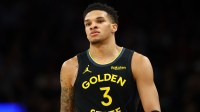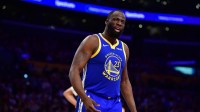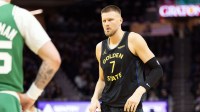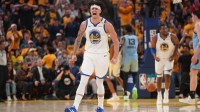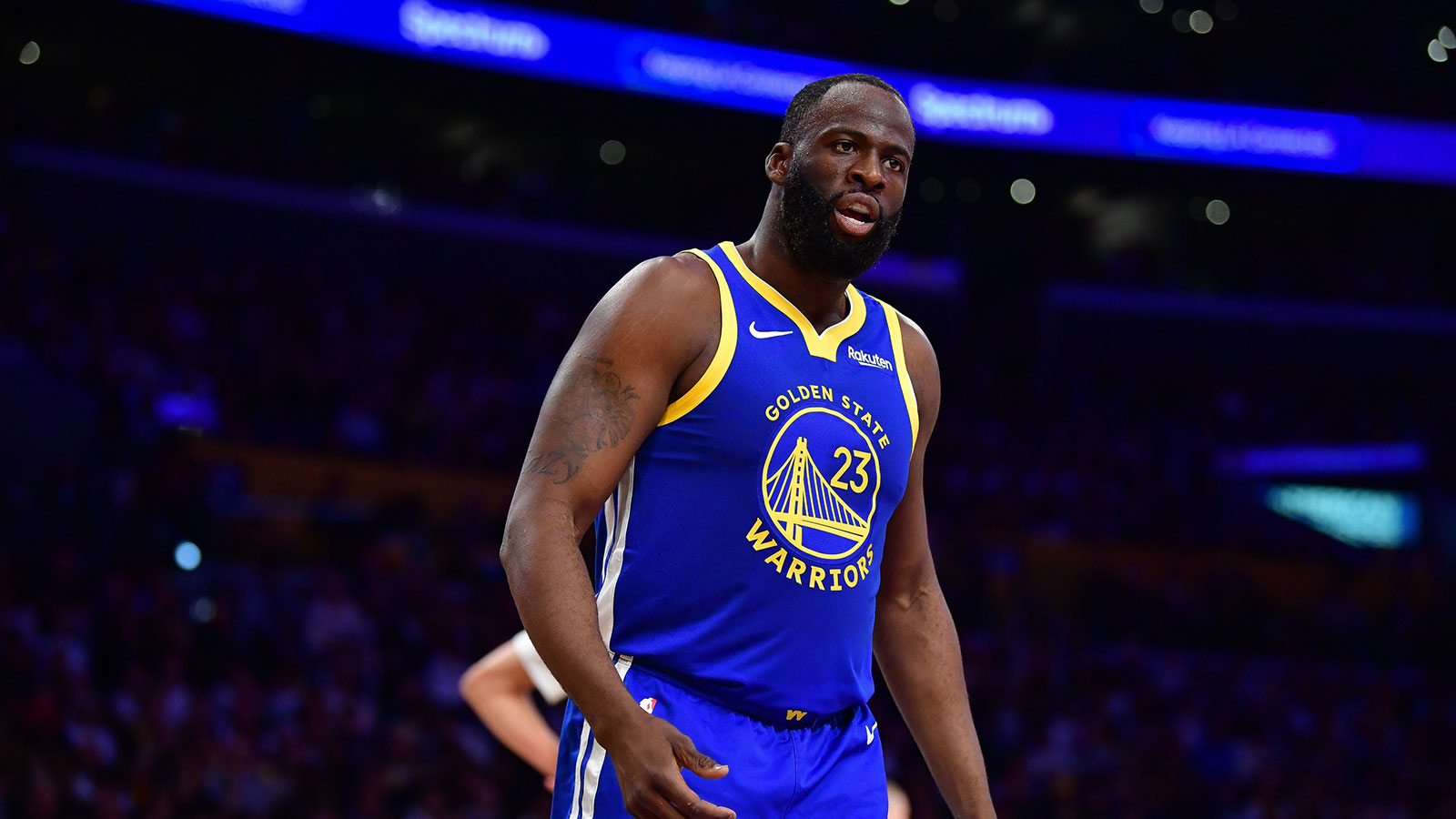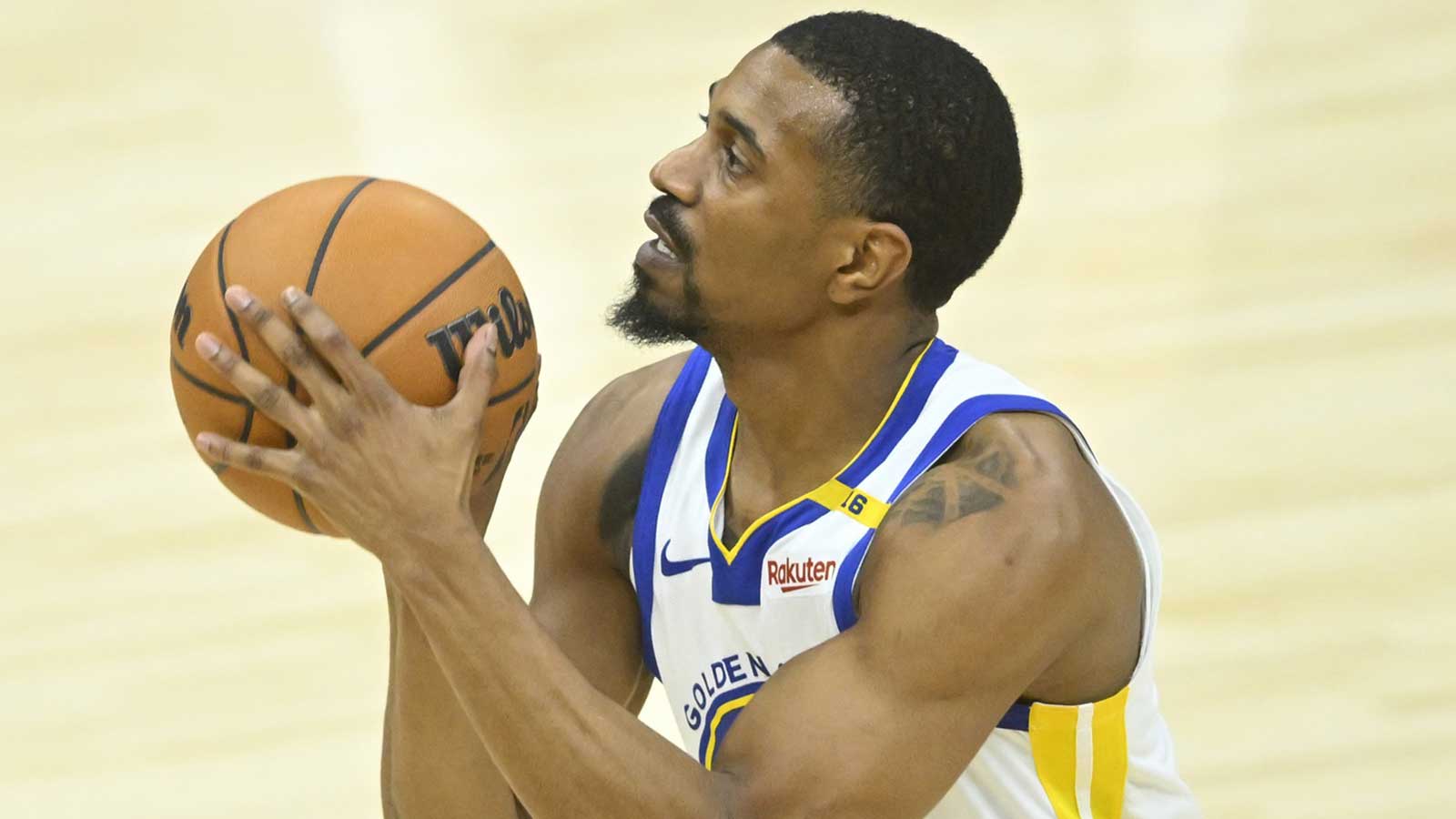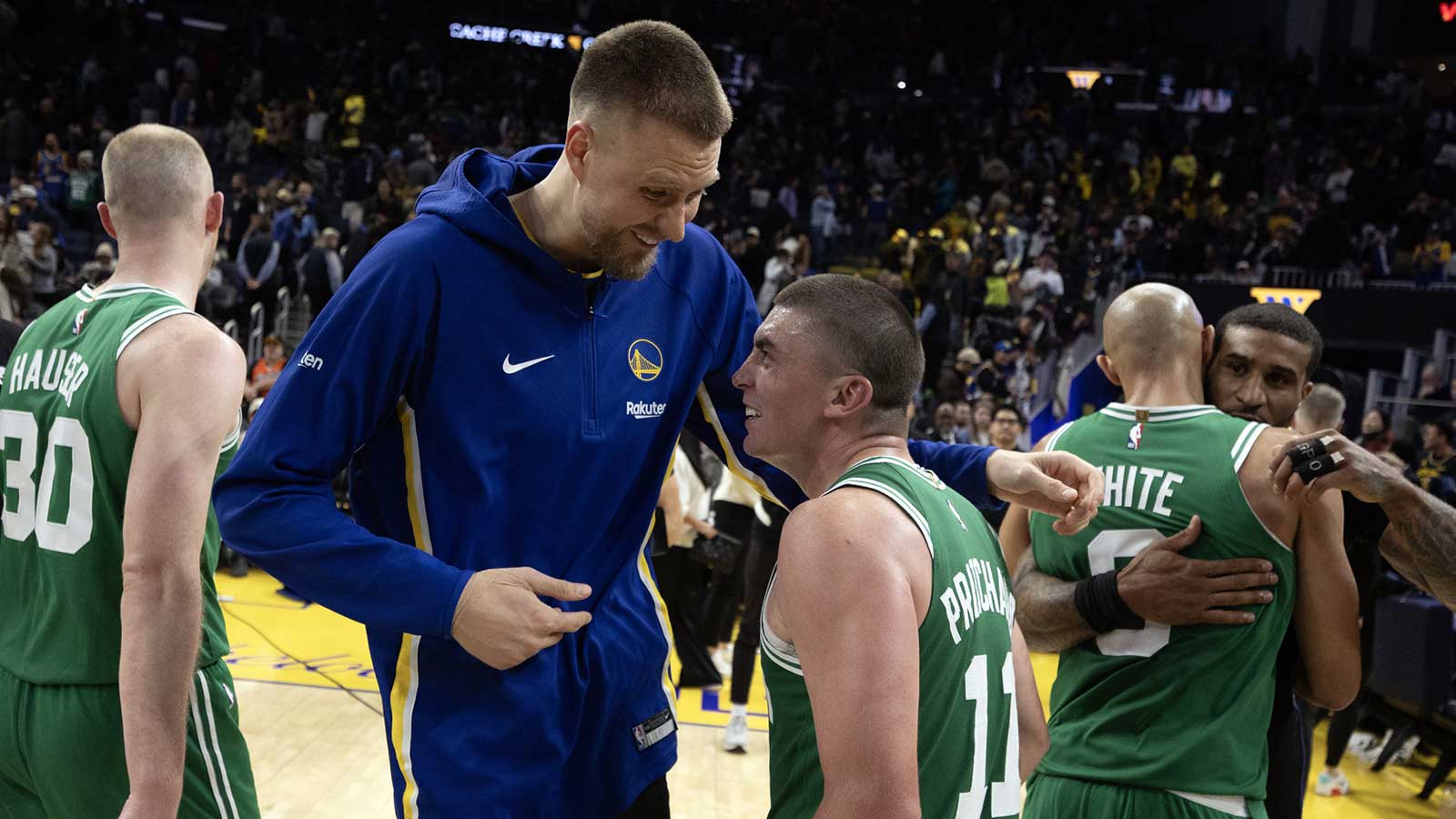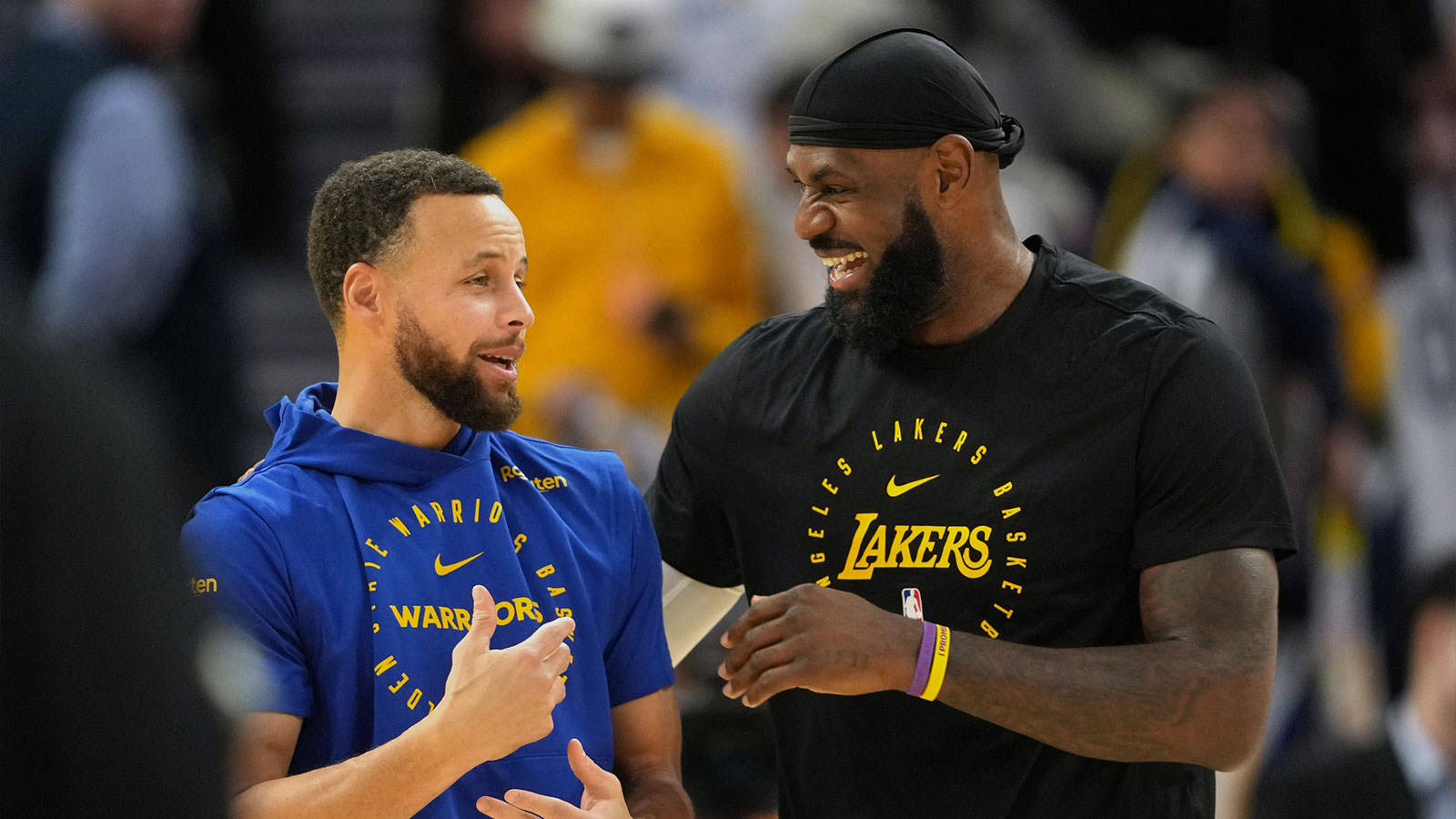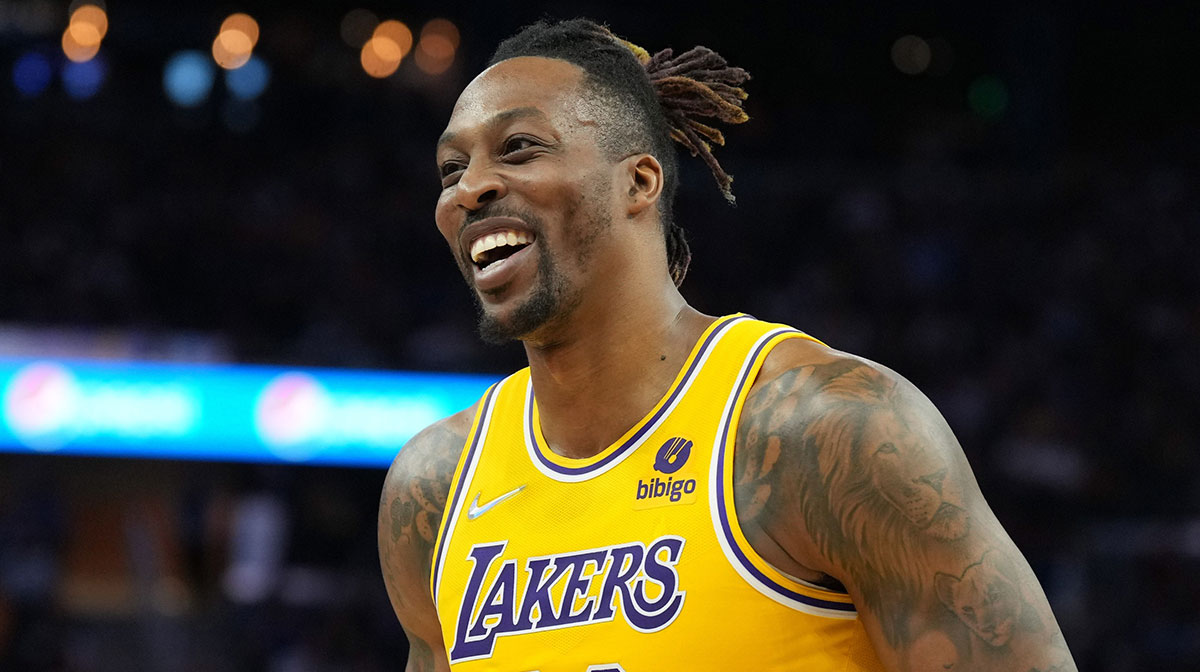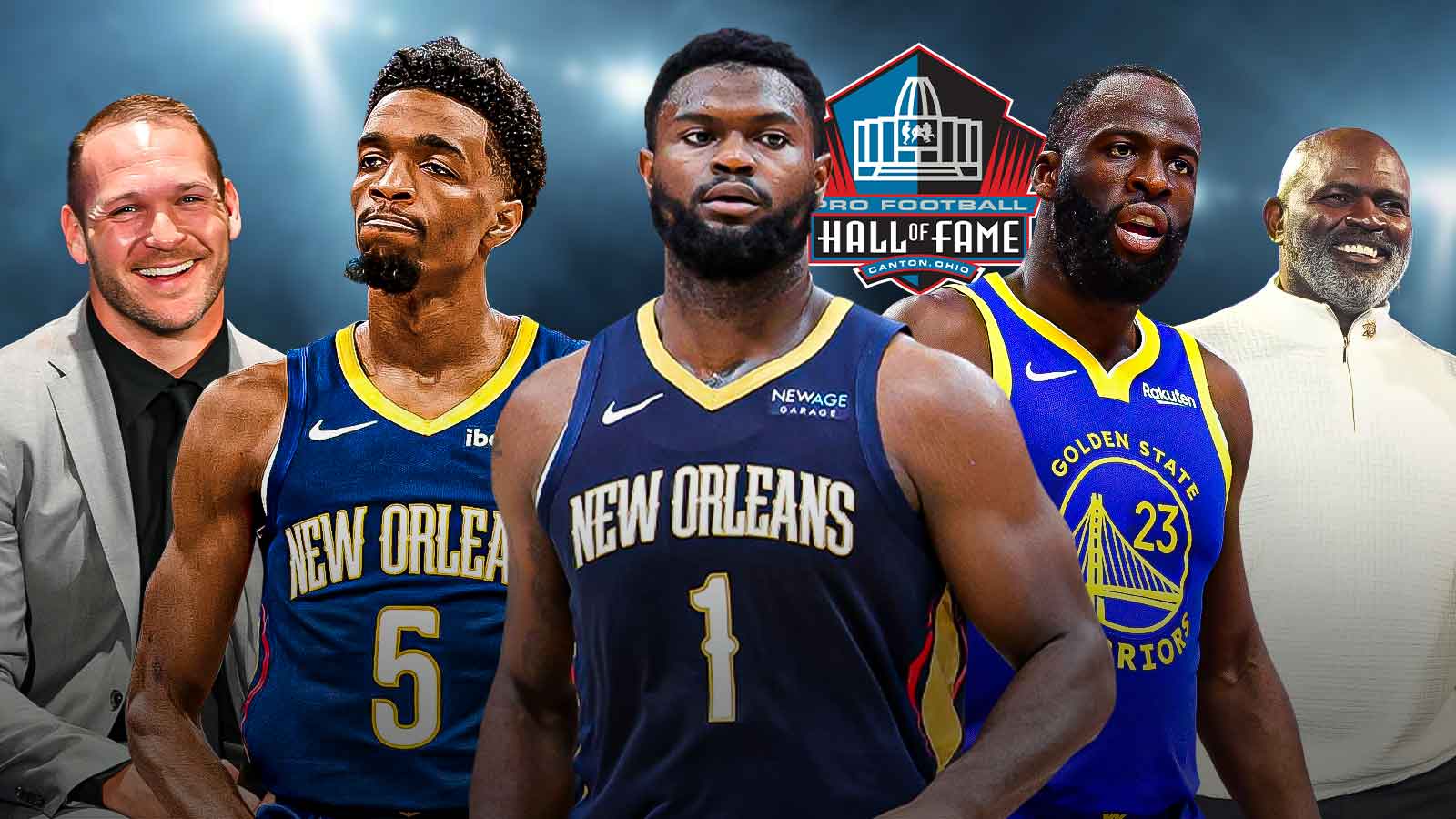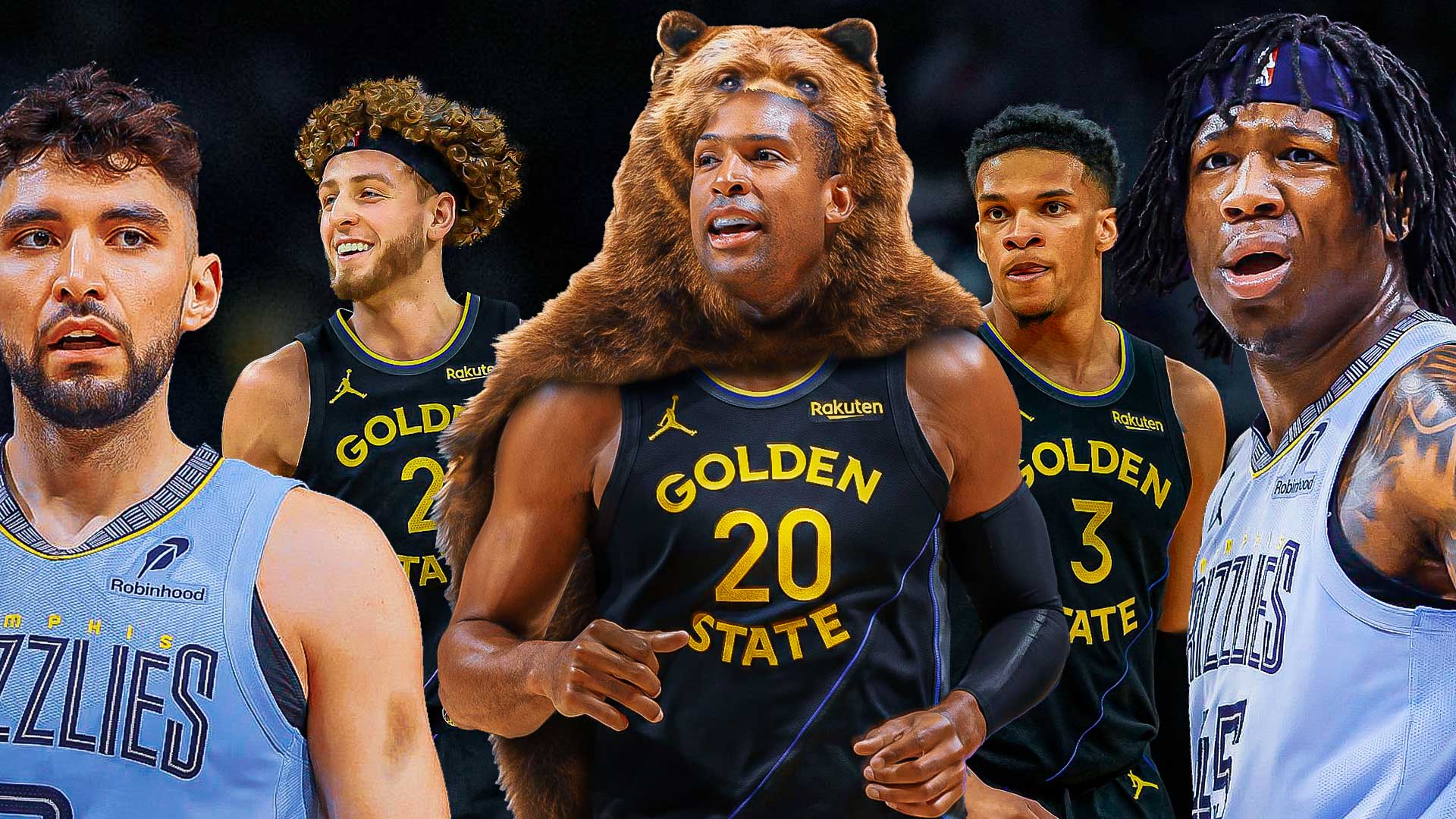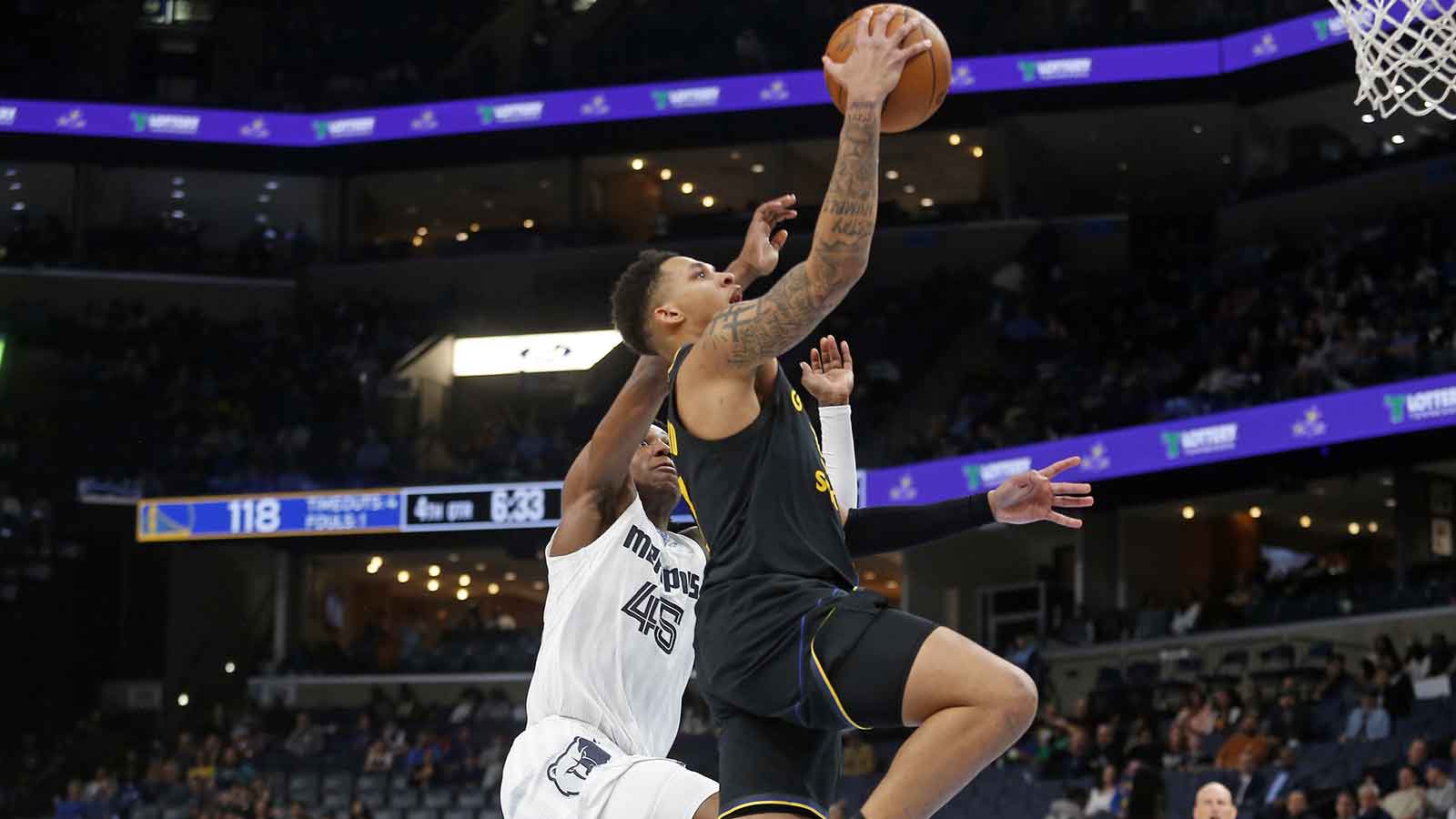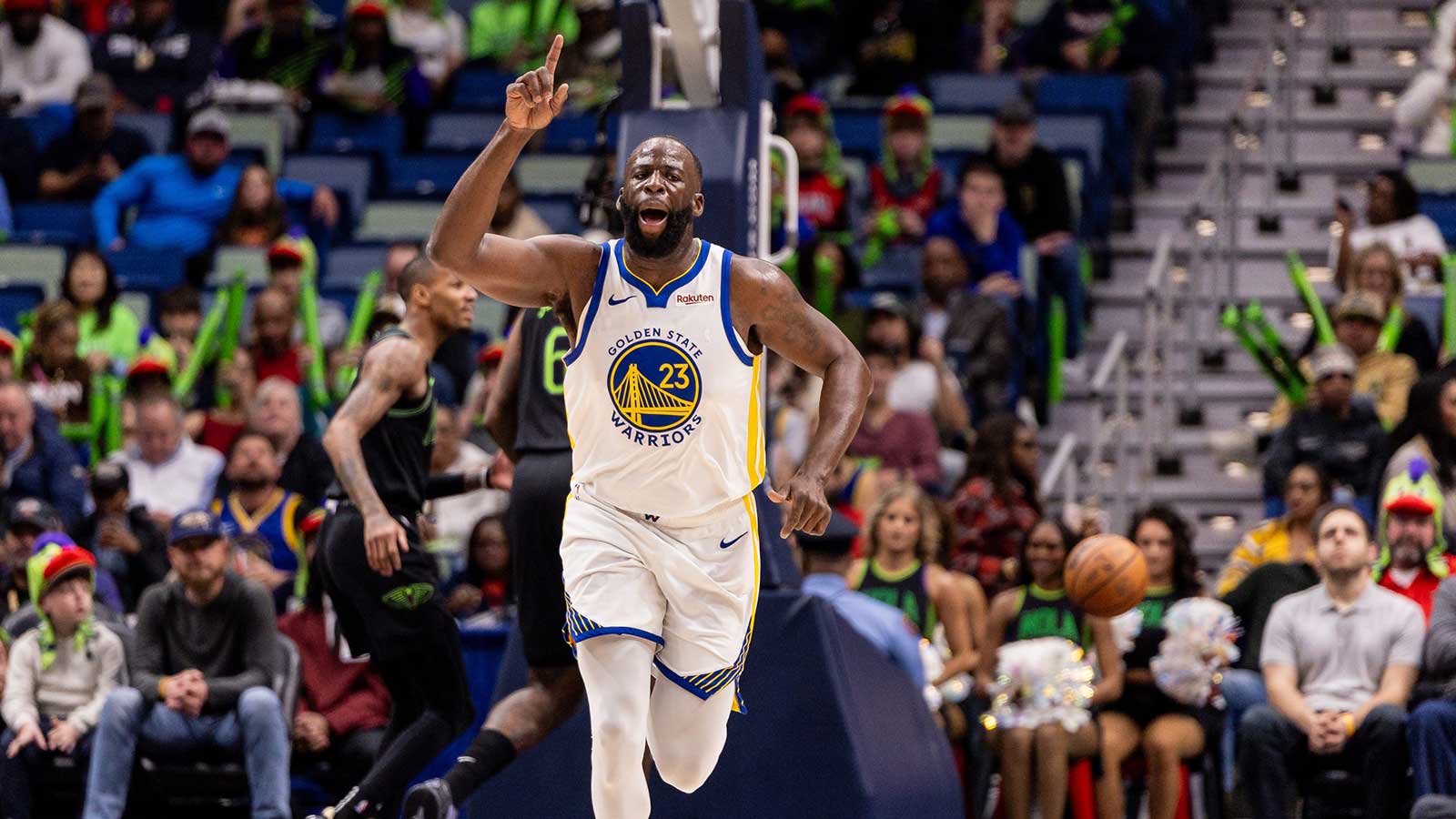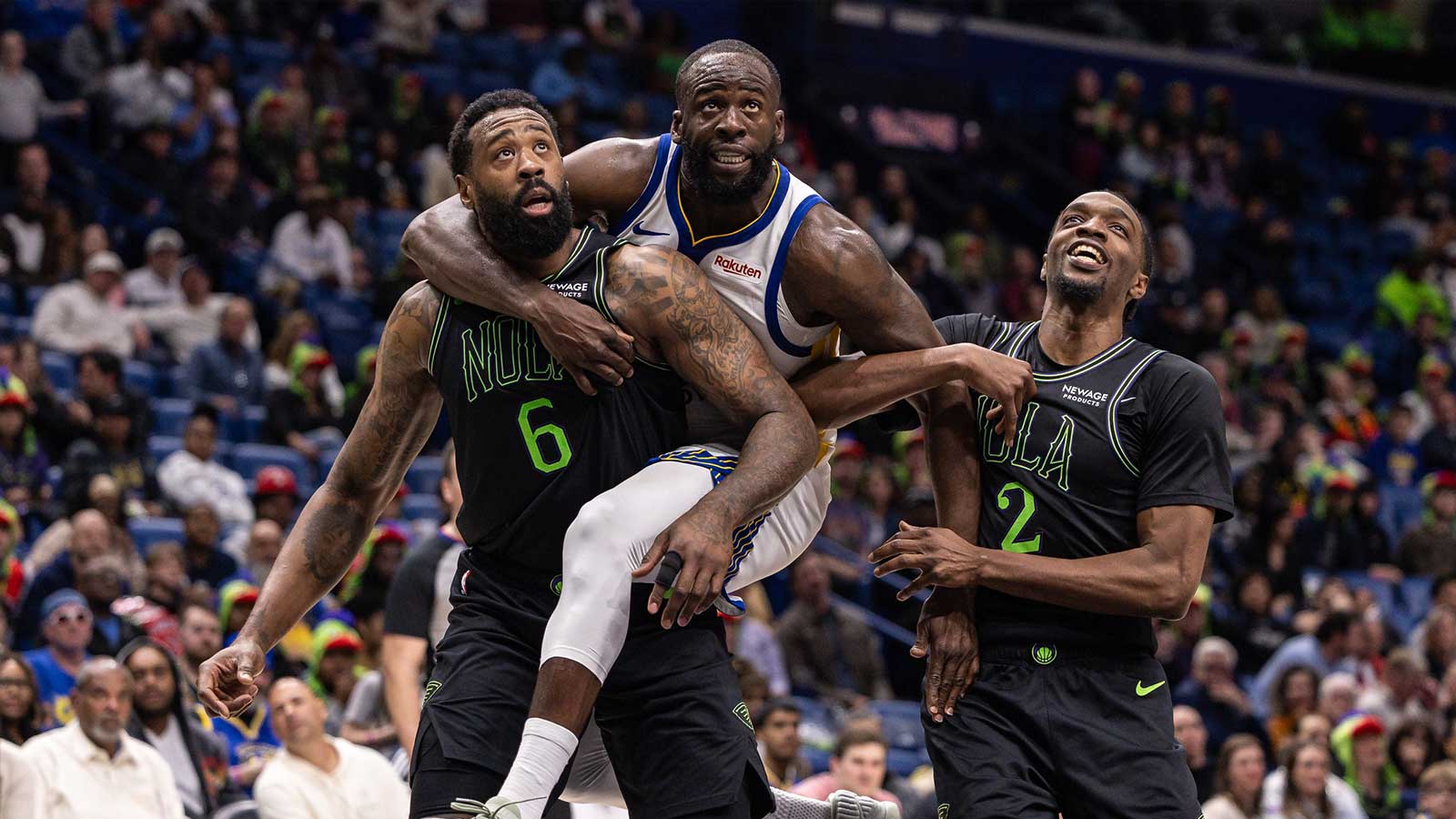Kevin Durant suffered what an Achilles injury in his return to the floor during Game 5 of the NBA Finals after a month spent on the sidelines. Here are three reasons how the Golden State Warriors superstar's latest setback is poised to affect the NBA landscape both now and going forward.
3. The Raptors Are Clear Favorites To Win The Title
For the first 14 minutes and nine seconds of Game 5, an ending to these NBA Finals too scripted for Hollywood seemed like it might actually materialize. Durant was absolutely sensational before his right leg failed him again, scoring 11 points, draining all three of his triples, grabbing two rebounds, and making multiple plays in the paint defensively. He was mostly an active bystander on offense and showed some rust on the other end by making a couple weak-side rotations a full step late, but still provided his team a sense of life and belief that was sorely lacking in Game 4, and has been missing throughout the Finals with the notable exception of the third quarter in Game 2.
Most important? The mere presence of Durant gave Steph Curry and Klay Thompson room to breathe offensively. The Raptors' defensive approach in this series can be distilled into a pair of interconnected goals: Limiting clean looks for the Splash Brothers, and coaxing everyone else on the roster to launch open shots from the perimeter they'd prefer passing up. Those objectives aren't enough with Durant on the floor, as he made abundantly clear early on Monday night. Golden State had a 144.4 offensive rating and connected on 8-of-13 from beyond the arc before Durant went down, looking far more like the unstoppable juggernaut of the past two Finals than the gritty overachiever who the Raptors came within two points of dethroning.
Don't let the sweeping woes of Durant's Achilles injury and Golden State's remarkably admirable performance thereafter distract from other crucial realities, though. The biggest one: Toronto shot a dismal 8-of-32 from beyond the arc, including 1-of-10 from the corners. Needless to say, the Raptors can't be expected to shoot that poorly on three-pointers again. Far more on-ball switching contributed to the Warriors' defensive improvement in Game 5, but not nearly as much as their opponent's inability time and again to connect on open shots from deep.
More discouraging for Golden State, there's a chance it won't be able to employ that same defensive strategy in either of the next two games. The presence of Durant is obviously key to the Warriors switching across the floor, but so is that of Kevon Looney, who finally bowed out of Monday's game for good in the third quarter after taking one too many hits to his damaged collarbone.
If Looney is unavailable for the remainder of the Finals, Steve Kerr will be left splitting center minutes between DeMarcus Cousins, Andrew Bogut, and Jordan Bell going forward. Only the latter of those options has the foot speed to hang with the Raptors' ball handlers on the perimeter, and he's all too often prone to mistakes of both commission and omission off the ball. Kyle Lowry and Kawhi Leonard roasted Cousins multiple times each after switches in Game 5, and Bogut, smart as he is, just isn't nearly quick enough to stay in front of the ball when guarding 30 feet from the rim.
The Raptors, if they'd managed to hit even a below-average clip of their threes on Monday, would already be celebrating a championship. With Durant out and Looney iffy, it would be something close to shocking if they aren't doing so at some point in the next week. No one should count the Warriors out, but make no mistake – they're now major underdogs in this series.
2. The League's Balance Of Power May Shift Even Further
It's no secret that many teams were waiting out the Warriors' dynasty. The league's balance of power was going to shift this summer no matter what, even if Durant decided to remain in Golden State. As dominant as the defending champions were at times during the regular season and throughout the playoffs, with or without the two-time reigning Finals MVP, there's been a growing belief throughout the NBA that their untouchable reign has begun coming to a close. The physical and mental pitfalls of age and a half decade of Finals runs are unavoidable.
Regardless, Durant seemed poised to stand at or just below the top of the league's individual hierarchy for several more years to come. At seven feet tall with an unblockable jumper, deft handle, and keen understanding of angles and space, his game would have aged as gracefully as any all-time great's, if not even more so. It still could, too. As he so casually demonstrated on Monday night, even a version of Durant sapped of quick-twitch mobility and explosive athleticism is dangerous enough to drastically impact the action on both sides of the ball every time he takes the floor.
But with a history of lower-body injuries and coming off a potential Achilles tear, it's safe to say Durant won't play at his best-in-the-world peak during his first season removed from surgery – which, remember, could very well be 2020-21. Would it have surprised anyone if he won MVP next season, no matter what jersey he was wearing? Now, one of the best players ever has lost a full season of his prime to rehab, and another to re-acclimate himself to the speed of the league following a year spent away from the game.
1. Free Agency Could Be Thrown For A Loop
Reminder: Kevin Durant has a $31.5 million player option on his contract for next season. He's been talked about as a prospective free agent this summer for years because his earning power will increase substantially should he opt out of his contract and hit the open market, and that's still the most likely outcome.
But should the worst fears of his injury be confirmed by an MRI on Tuesday, Durant will miss the vast majority if not all of next season, a likelihood that could make the specter of joining a new team – and familiarizing himself with new medical personnel, new training staff, new management, and new potential whims of an organization's overall culture – far more daunting than it would be otherwise.
Max-level offers, to be clear, will still be on the table, and Durant would make $38.1 million next season if he signs a new contract with the Warriors or another suitor in free agency. But he proved last summer by signing a two-year extension just below the maximum that earnings aren't the be-all end-all. At the very least, Durant's injury increases the chances he remains with the Warriors for one more season.
What could that mean for Kyrie Irving's free-agency decision? Would he be as willing to sign with the New York Knicks or Brooklyn Nets without the safety net provided by a player of Durant's caliber? Maybe Irving starts recruiting other star free agents, who will be fully available next season, to his preferred landing spots, lessening the interest those teams have in Durant.
How does the probability of Kevin Durant sitting out 2019-20 affect the Anthony Davis situation? The Los Angeles Lakers, loathe to wasting another year of LeBron James' late prime, can surely be crossed off Durant's list of potential destinations in permanent ink.
Free agency was always going to hinge on Durant's decision more than that of any other player. Now, with so much about his future unknown, don't be surprised if July plays out much differently than it would have if he were healthy.
It's impossible to overstate just how much Durant tearing his Achilles would impact the league – today, next season, the one after it, five years from now, and in coming decades when stacking his career up against those of other all-timers.




